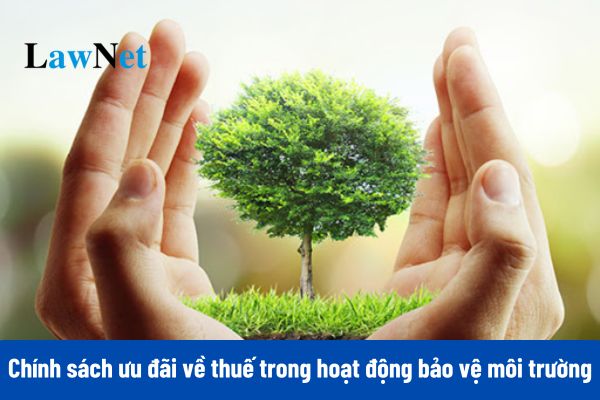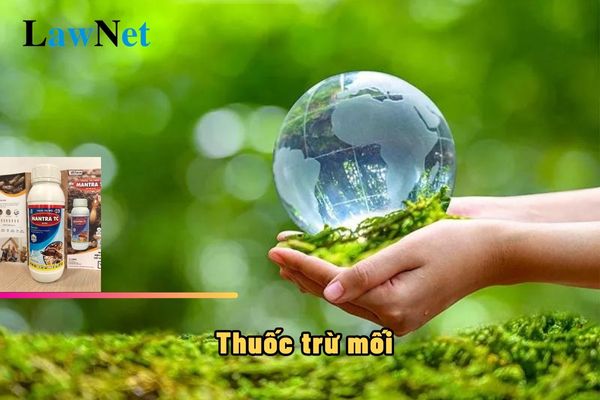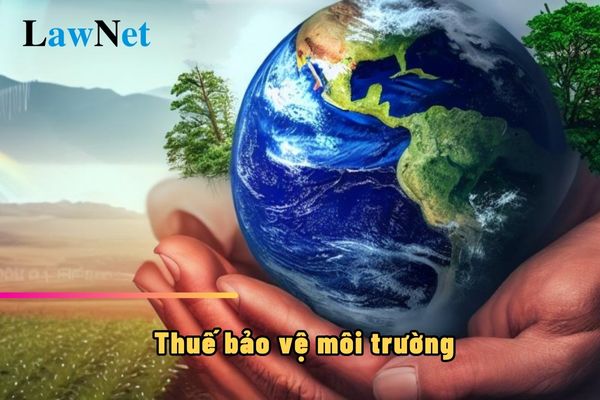What are the tax incentive policies in environmental protection in Vietnam?
What are the tax incentive policies in environmental protection in Vietnam?
Based on Article 134 of Decree 08/2022/ND-CP (amended by clause 49, Article 1 of Decree 05/2025/ND-CP) stipulating the tax incentive policies in environmental protection from January 6, 2025, are detailed as follows:
(1) Corporate income tax incentives
Enterprise income generated from investment projects within the List of environmentally protective activities that are given incentives and support as stipulated in clauses 1 and 2 of Appendix XXX issued together with Decree 08/2022/ND-CP shall enjoy corporate income tax incentives in accordance with the law on corporate income tax.
(2) Export tax incentives
Products manufactured from recycling, waste treatment activities within the List of environmentally protective activities that are given incentives and support as stipulated in subsection (đ), clause 2 of Appendix XXX issued together with Decree 08/2022/ND-CP are exempt from export taxes as stipulated by the laws on export and import taxes when meeting all the following criteria:
- Manufactured from recycling, waste treatment activities of the project or facility in compliance with the environmental license, component environmental license granted by a competent state agency according to legal regulations, excluding products made from materials sourced from recycling, waste treatment activities of other organizations or individuals;
- Meets the conditions ensuring the quality of the exported goods as stipulated by the laws on product and goods quality;
- Production activities conform with the business sectors and objectives stipulated in the investment registration certificate or the decision approving the investment policy (in case the project is granted an investment registration certificate or policy acceptance decision) or equivalent legal documents;
- Uses waste as production material; does not use imported scrap material from abroad.
The quantity of products exempt from export tax is calculated based on the volume obtained from recycling, waste treatment activities present in the products proposed for tax exemption (excluding additives; imported scrap from abroad for production; materials sourced from recycling, waste treatment activities of other organizations or individuals).
Organizations and individuals must declare the volume of products proposed for export tax exemption based on actual recycling, waste treatment activities of the business and documents proving the fulfillment of the criteria stipulated in (i), (ii), (iii), (iv) using the form specified in Appendix XXXIa issued together with Decree 08/2022/ND-CP and are accountable before the law for the accuracy of the declarations, providing information for customs authorities to review and process tax exemption according to regulations.
Before March 31 of the following year, the customs authority where export tax exemption procedures were conducted must report information on enterprises eligible for export tax exemption along with the volume and types of exported goods from recycling, waste treatment activities to the agency that issued the environmental license, component environmental license for implementing management measures and inspection of the enterprise's recycling, waste treatment activities according to the law on environmental protection. Tax inspections and audits are conducted in accordance with the law on tax administration.
Organizations and individuals must report the results of export tax exemption from recycling, waste treatment activities in the periodic environmental protection performance report of the project or facility.
(3) Import tax incentives
Machinery, equipment, vehicles, tools, and specialized materials utilized in waste treatment projects and environmental protection are exempt from import tax according to the laws on export and import taxes when meeting all the following criteria:
- Specialized machinery, equipment, vehicles, tools, and materials imported for use in waste treatment projects, environmental protection for projects, facilities implementing concentrated municipal waste collection, transport, treatment services, and concentrated municipal wastewater treatment services approved by a competent authority as per investment law;
- Specialized machinery, equipment, vehicles, tools, and materials imported for use in waste treatment projects, environmental protection projects as stated in the feasibility study report or equivalent documents with the feasibility study report of the investment project, expanded investment project according to legal regulations on investment, public investment, public-private partnership investment, construction;
- Investment projects, facilities have been approved by competent authorities with environmental impact assessment report results or have been granted environmental licenses as defined.
- Specialized machinery, equipment, vehicles, tools, and materials do not belong to the List of machinery, equipment, spare parts, special-use transport, raw materials, materials, or semi-finished products produced domestically issued by the Minister of Planning and Investment.
Organizations and individuals are only entitled to import tax exemption when importing specialized machinery, equipment, vehicles, tools, and materials for projects, facilities executing municipal solid waste collection, transportation, treatment services, and municipal wastewater treatment services of the investment project, facility. Organizations and individuals are responsible before the law for the accuracy when declaring, providing information on the type, quantity of machinery, equipment, vehicles, tools, and materials imported and documents proving fulfillment of the aforementioned criteria using the form specified in Appendix XXXIb issued together with Decree 08/2022/ND-CP and are accountable before the law for the accuracy when declaring, providing information for customs authorities to review and process tax exemption according to regulations.
(4) Other tax, fee, and charge incentive policies are implemented in accordance with the law on taxes, fees, and charges.

What are the tax incentive policies in environmental protection in Vietnam? (Image from the Internet)
What are regulations on the environmental protection taxpayer in Vietnam?
According to Article 3 of Circular 152/2011/TT-BTC stipulating the environmental protection taxpayer as follows:
- Environmental protection taxpayers are organizations, households, and individuals producing, importing goods subject to tax as regulated in Article 1 of Circular 152/2011/TT-BTC.
- Environmental protection taxpayers in certain specific cases are stipulated as follows:
+ The trustee recipient for importing goods is the environmental protection taxpayer, regardless of the method of receiving the import trust and exporting or selling the goods to the trustee.
+ Organizations, households, and individuals producing, processing, and simultaneously receiving the trust to sell goods within the Vietnamese market are the environmental protection taxpayers. In case organizations, households, and individuals receiving processing but not entrusted for sale, the organizations, households, and individuals delivering for processing are the environmental protection taxpayers when exporting or selling goods in Vietnam.
+ In cases where organizations, households, and individuals act as focal points purchasing small-scale, scattered coal without evidence of environmental protection tax payments, they are the taxpayers.
What goods and services are not subject to environmental protection tax in Vietnam?
Based on Article 4 of the Environmental Protection Tax Law 2010, regulations on entities not subject to environmental protection tax specifically include:
- Goods not specified in Article 3 of Circular 152/2011/TT-BTC are not subject to environmental protection tax.
- Goods specified in Article 3 of Circular 152/2011/TT-BTC are not subject to environmental protection tax in the following cases:
+ Goods in transit or transshipment through Vietnamese borders or territories as per legal provisions, including goods transported from the exporting country to the importing country through Vietnamese borders without import procedures into Vietnam and export procedures from Vietnam; goods transiting through Vietnamese borders based on agreements signed between the Government of Vietnam and foreign Governments or agreements between authorized agencies or representatives of the Government of Vietnam and foreign Governments according to legal provisions;
+ Goods temporarily imported for re-export within the timeframe stipulated by law;
+ Goods directly exported by the production facility or entrusted for export by an export business facility, excluding cases where organizations, households, or individuals purchase goods subject to environmental protection tax for export.



- What are Answers to Round 3 of the Contest on Learn about the 95th Anniversary of the Founding of the Communist Party of Vietnam and the History of the CPV Committee of Quang Ninh Province?
- How to calculate benefits for those retiring early upon downsizing in Vietnam? Is the retirement allowance subject to PIT?
- What is the initial licensing fee declaration form in Vietnam in 2025? How to complete the 2025 licensing fee declaration?
- What is the schedule of fees for chemical affairs in Vietnam? What are regulations on the management and use of fees in chemical affairs in Vietnam?
- What are the slaughtering control fees in veterinary in Vietnam? Are livestock farms subject to environmental protection fees in Vietnam?
- What are instructions for completing the tax declaration for fixed tax payers changing tax calculation methods in Vietnam (Form 01/CNKD)?
- How to determine the 2025 Tet bonus fund for Vietnamese officials and public employees according to Decree 73? Are 2025 Tet bonuses for Vietnamese officials and public employees taxable?
- What is the 2025 Tet holiday schedule for Shopee couriers in Vietnam? Shall goods under 1 million VND sent via express delivery to Vietnam not be exempted from import duty?
- What is the fixed asset liquidation minutes form in Vietnam according to Circular 200/2014?
- How to calculate benefits for Vietnamese tax officials retiring early in 2025?

